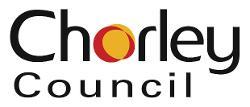Business rates enforcement (bailiffs)
Enforcement agents, previously called bailiffs, are certificated by the County Court. This ensures good conduct and upholds professional standards.
To qualify for certification, all enforcement agents are required to pass an exam which tests their knowledge of the law as well as the industry standards they must meet.
Agents will carry their enforcement agent certificate and photographic ID and wear body-worn cameras to record their visits on film. Film footage is constantly reviewed to monitor agents' conduct and performance. This includes checking that agents are adhering to standards of privacy, such as not filming minors and or personal information such as credit card details.
Agents visits are tracked and calls to the Enforcement Agents office are recorded.
We use Rundles to recover unpaid business bates. You can contact them to make payment or discuss your debt on Freephone 0800 0816000 or by visiting the Rundles website.
The enforcement process
The enforcement process is governed by the Taking Control of Goods Regulations 2013.
The first step in the enforcement process is the compliance stage.
Compliance stage
A fee of £75 is charged when the agents receive instruction from us.
At the compliance stage you will be sent a 'Notice of Enforcement' which gives details of:
- the amount you owe
- how and when to pay by
- what will happen if you do not pay (including the extra fees you will have to pay)
- contact details for the enforcement agent or company
- contact details for free debt advice
You will have at least 7 days (not including Sundays or Bank Holidays) before any further action is taken by the enforcement agent or company.
If you have received a Notice of Enforcement, you should contact the enforcement agent or company straight away to discuss payment. You should not contact us unless you believe you are not liable for the debt.
Enforcement stage
If the enforcement agent or company does not hear from you by the date stated, they will escalate your case to the next stage, the enforcement stage.
At this stage, an enforcement agent will visit you to request payment and an additional £235 (plus 7.5% of the original debt over £1,500) will be added to the amount you owe.
If you are unable to pay in full the agent may enter into a controlled goods agreement with you. This means a list is drawn up of what could be removed later if you do not come to an alternative arrangement. Making a controlled goods agreement gives you a final chance to pay your debt rather than having your goods removed. If you do not pay, and there is a controlled goods agreement in place, the listed goods can be removed and sold to pay the amount you owe.
Sale stage
If you do not pay, and a visit is required for the purpose of transporting goods to the place of sale, a fee of £110 (plus 7.5% of the original debt over £1,500) is added to the amount owed. This is to cover costs for moving the possessions so they can be sold. Additional (actual) costs for other expenses, such as hiring a locksmith, storing goods or auction costs, may be applied. Further expenses are limited and must be approved by the court.
National standards
The Ministry of Justice has issued national guidelines for all Enforcement Agents that sets out what the Ministry of Justice, those in the industry and some major users regard as minimum standards. These standards do not replace the law, codes of practice or local agreements.
Complaints about enforcement agents
Please direct any complaints to Rundles. If you are dissatisfied with their response then tell us by making a complaint or by calling 01257 515431.




